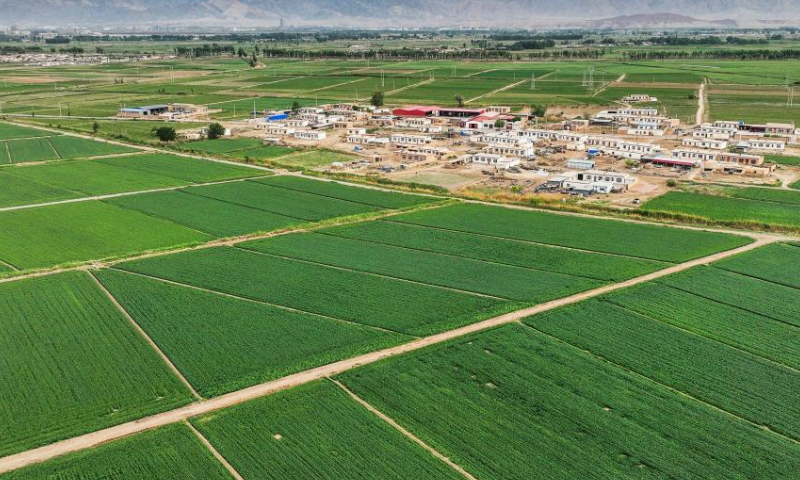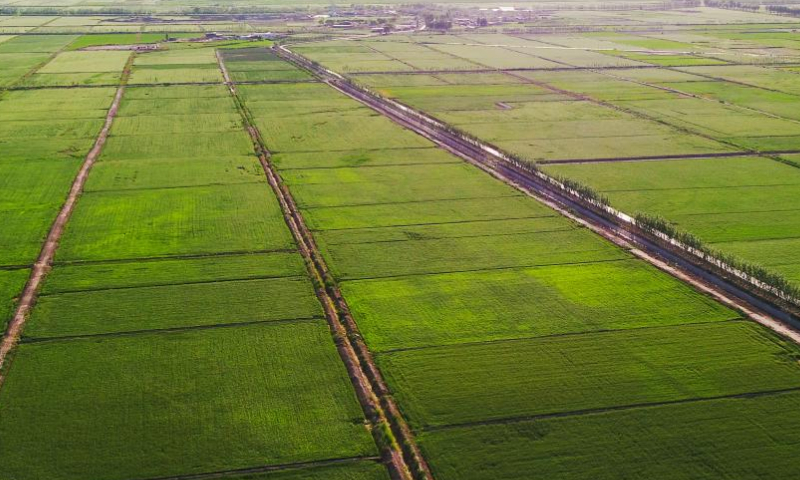
This aerial photo taken on June 2, 2022 shows high-standard farmland in the city of Bayan Nur, north China's Inner Mongolia Autonomous Region. Photo: Xinhua

This aerial photo taken on June 2, 2022 shows high-standard farmland in the city of Bayan Nur, north China's Inner Mongolia Autonomous Region. Photo: Xinhua
North China's Inner Mongolia Autonomous Region, one of the country's major grain-producing regions, has so far developed 49.89 million mu (around 3.3 million hectares) of high-standard farmland, local authorities said.
The figure represents 29 percent of the total arable land area and supports more than two-thirds of the grain production capacity of the region, according to the regional agriculture and animal husbandry department.
Of the total high-standard farmland, the high-efficiency water-saving irrigation area in Inner Mongolia has reached 32.73 million mu, saving 3.3 billion cubic meters of water annually and achieving a win-win result between high grain yield and green ecological agriculture development.
Inner Mongolia is one of the four regions with over 100 million mu of cultivated land and also one of the 13 major grain-producing areas in China. The output of major crops such as corn, soybean, potato, millet, sorghum, and mung bean ranks among the top in the country.
